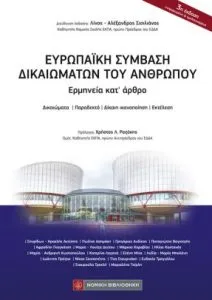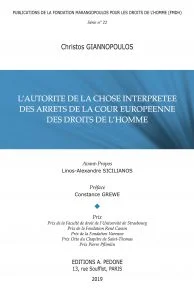
Author(s): Giannopoulos, Christos
The authority of the res interpretata of the judgments of the ECtHR is a concept with a dual meaning. It designates both the jurisprudential authority and the interpretative authority of the ECtHR. These two interconnected aspects attest the distinctive nature of its jurisprudence. Thus, the binding force of the decision is not limited to the specific case, but it can be extended to third States insofar as the ECtHR is expressly vested with the power to set out authentic interpretations that form part of the Convention.
Therefore, some judgments of the ECtHR have a mandatory force of reference and, for this reason, they are binding on the entire community of the States Parties. Being completely dissociated by the obligation of the defendant State pursuant to article 46 of the Convention, the obligation to take into consideration the European case-law implies the proactive intervention of the State to align its national system without awaiting a condemnation by the ECtHR. National jurisdictions have progressively recognised this deterrent effect of the Strasbourg Court’s case-law, contributing to the development of an inter-jurisdictional partnership, since the implementation of the ECtHR’s judgments is a shared judicial responsibility.
